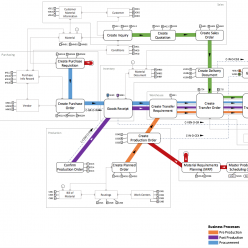Some of the best practices for a perfect implementation of an ERP system are:
1) Executive Backing: getting support and participation from company executives will encourage users to support the process. Moreover, the project can function within the limitations of time, scope and money. It builds overall consensus in the organization, which is critical for a successful implementation.
2)Set Practical Goals: An ERP system is going to solve a lot of problems such as, cost reduction, an increase in productivity etc., but all this is not going to happen in a short period time. Implementation will take time and an ERP system should not be considered as a solution to all organizational problems.
3) Training and Change Management: it is imperative to train the users on how to feel comfortable using an ERP system. If users are confident about the working of the ERP systems, the user adoption will increase dramatically
4) Maintenance Planning: ERP system will have problems and solving those problems will cost money. In order to avoid such situations, it is imperative to foresee and have adequate resources in place to solve problems. This will ensure a long-term success of the ERP implementation.
5) Understanding Key features: Many users don’t have a good understanding of what features the ERP system provides. Knowing the key features and understating them will ensure functions are completed faster, and business objectives are met.
http://www.netsuite.com/portal/resource/articles/erp/erp-implementation.shtml
